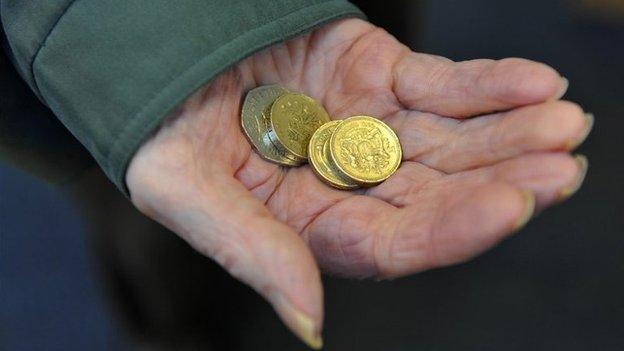Commission calls for radical action on Scottish housing 'crisis'
- Published
Better housing would help deal with poverty and inequality, according to the Commission on Housing and Wellbeing
Scotland's housing policy needs radical action to help deal with poverty and inequality, an independent commission has said.
The Commission on Housing and Wellbeing, external was established two years ago by the charity Shelter.
Its latest report called on the Scottish government to increase the number of new homes being built to 23,000 a year.
The Scottish government said housing "is at the heart" of its ambitions.
The commission said ignoring its recommendations would lead to a deepening of the current "crisis".
Some 15,500 homes were constructed in 2013-14, according to government figures.
The commission claimed a wider house-building programme would create jobs and bring significant health and education benefits.
'Stark statistics'
Its chairman Robert Black, the former auditor-general for Scotland, said there was already a "homes crisis."
He added: "There are some stark statistics in the report about numbers of households on the waiting list, which is more than 150,000.
"More and more families are living on short-term tenancies in the private rented sector, so we think there's a real issue."
The report, launched on Wednesday, called for a "modest" increase in the number of houses built by 2020.
But Mr Black dismissed suggestions that tight public finances meant such an increase was unachievable.

Key report findings
More than 150,000 households are currently waiting for social housing
Around 940,000 people are in fuel poverty
More than 60,000 households are classed as living in overcrowded homes
Half of all housing in Scotland falls short of official quality standards

"By making that investment, there's a 'spend to save' issue because a good home is essential to the quality of life of everybody living in Scotland," he said.
"It can help with issues as diverse as providing a base for kids to do their learning well, to the difficult issue of freeing up people who are blocked in hospital beds because their homes aren't suitable."
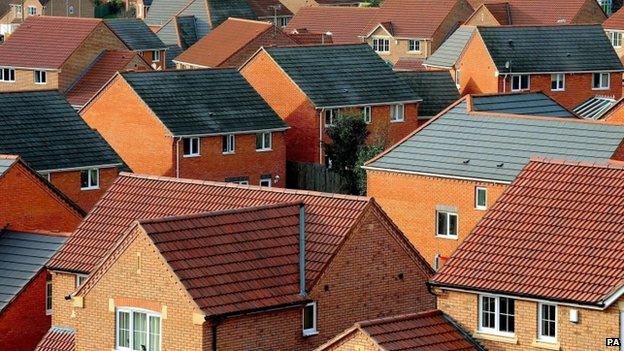
The commission's report called on the Scottish government to increase house-building to 23,000 homes a year
Anne Jarvie, former chief nursing officer for Scotland, who also sat on the commission, said improving the housing stock could help cut costs for the NHS.
"Having to live in cold, damp and completely unsuitable properties, or not having a permanent home, risks the long-term physical and mental health and wellbeing of many people, particularly children," she said.
"By acting now we can help end this inequality and create an environment where current and future generations in Scotland can prosper and flourish."
'Ambitious priorities'
Shelter Scotland's director, Graeme Brown, said he had no doubt the government could meet the targets the report had set.
"We have set a challenging and ambitious set of priorities for the government through this report. However, obviously we are in constrained times," he added.
"We will be looking to the finance secretary and the spending review which the Scottish government will be announcing later this year as an indication that they are seriously going to try to tackle these problems."
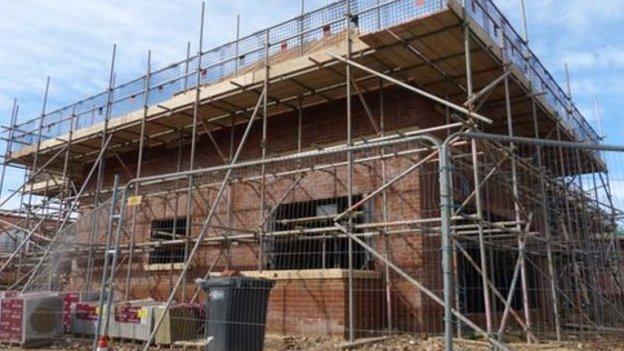
Around 15,500 homes were constructed in 2013-14, according to Scottish government figures.
The report highlighted the close links between inequality, poverty and poor housing.
It said new homes need to be built in areas where jobs exist, and recommended possible tax changes to improve the supply of land for housing.
'Fairer country'
Social Justice Secretary Alex Neil MSP welcomed the publication.
He said: "Housing is at the heart of the Scottish government's ambitions to create a fairer and more prosperous country, and it is our aim that everyone should have a safe, warm home which suits their needs and they can afford.
"Access to good quality housing is a vital part of this government's drive to secure economic growth, promote social justice, strengthen communities and tackle inequality."
- Published16 March 2015
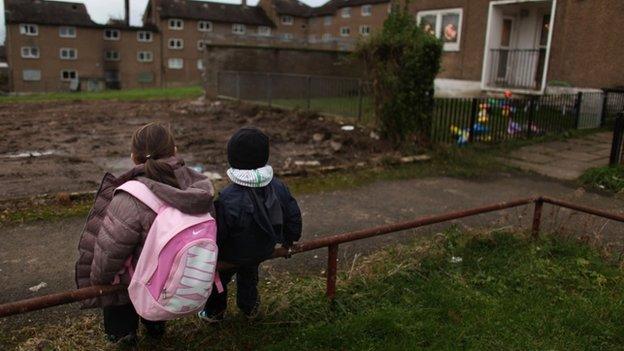
- Published3 December 2014
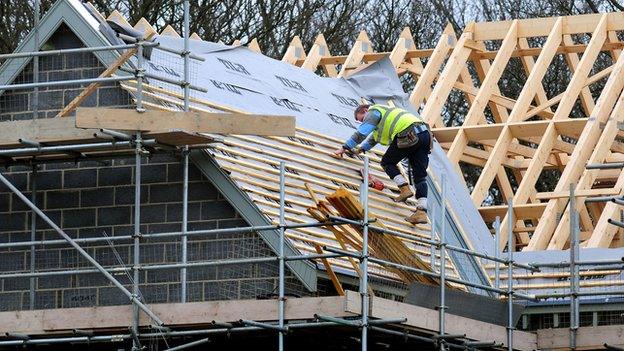
- Published20 August 2014
